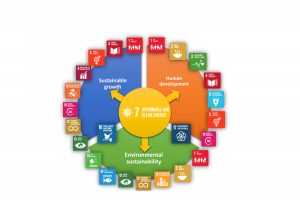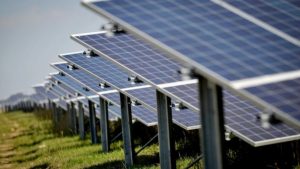Though a novelty, optimisms that the initial offers for Nigeria’s first ever sovereign green bond could be oversubscribed sounds refreshing, reports OGN.
In a 2015 report: ‘Green bonds: mobilising the debt capital markets for a low-carbon transition,’ OECD Secretary-General, Angel Gurría, hinted that raising capitals for green projects that would help the world move closer on its low carbon revolution would become much easier when government’s policies begin to meet the expectations of business communities.
Gurría specifically said that: “Government policies can play a central role in influencing how private capital is mobilised and shifted,” and that it was time to begin to look beyond the newness of green bonds.
It was also him who further explained that, “it will only be green if the investment landscape is supportive,” adding that, “coherent climate policies and good framework conditions for investment are essential.”
“We need to move from a world where green bonds are a novelty to one in which the entire bond market begins to reflect the transition towards a low-carbon transformation,” Gurría, to provide a firm stance that stock exchanges have traditionally evolved to accept the global push against climate change and need to become key funding sources for government’s green infrastructure or projects against these.
Within their roles, stock exchanges have metamorphosed into middlemen between bond issuers and investors, and have overtime kept their places firmly in the heart of capital markets as bridges for the financing of economic growths.
But as it is known, governments are frequently in contention with meeting their socio-economic obligations to citizens. At various levels, they have to either provide health facilities, build schools, or even finance key infrastructure projects like power systems, municipal sewage and water treatment works or housing estates to shelter its population.
Taking up these have always not come so easy, especially in terms of finance. This may require that governments go to the stock exchange to borrow money by selling securities or bonds to the investing public.
In the short term, such decisions to issue bonds may obviate the option of direct taxation of citizens to finance infrastructure projects, as the bonds are secured with the full faith and acknowledgement of the government’s commitment to eventually raise funds and make coupon payments to refund the principal to the lenders when the bonds mature.
It is from this that Nigeria, a country of about 180 million people, out of which more than half do not have electricity, has approached her capital market using the unique instrumentality of green bonds to raise funds to finance clean energy deployment against her widespread energy poverty.
What are green bonds, why is Nigeria into it?
As stated by the OECD report, the use of bonds to finance large scale infrastructure directly is not entirely new, but since 2007 a market for bonds specifically self-labelled or designated as ‘green’ emerged.
According to the OECD, a green bond is differentiated from a regular bond by this label, which signifies a commitment to exclusively use the funds raised to finance or re-finance ‘green’ projects, assets or business activities like solar power generation and supplies.
Indeed, such new financial tools like green bonds are helping drive more capital to ‘green’ projects as was reported by the OECD in the scaling of annual issuance of labelled green bonds from $36.6 billion in 2014 to $40 billion by November 2015.
As known, green projects like solar power generation were adopted by world leaders as energy sources that could help the world cut down its rising carbon emission which are threats to the environment.
And because Nigeria do not generate enough fossil fuel electricity for all its citizens at a time the world is fast transiting to renewable energy sources which she has in abundance, she decided she could make the most of the opportunity segue on this with the world.
To conveniently do this and raise funds to build and generate clean energy for its population, the country chose to approach her stock market – the Nigerian Stock Exchange, which has equally begun to react to these environmental and climate changes, to raise green funds for her green projects.
What the N20bn green bond can do?
Though not yet listed on the NSE, there are indications Nigeria could build with the N20 billion green bond, brand new renewable energy plants – solar, wind, biomass, hydro, to provide her citizens with clean electricity, in addition to firming up her commitment to climate change and sustainable environment.
If considered, the new renewable energy capacities from the bond, should also help the government realise its renewable energy projection of 30 per cent contribution to the country’s overall electricity generation capacity by 2030.
Already, the country’s power minister, Mr. Babatunde Fashola, has indicated that this could be quite valuable in this regards to his plans.
Fashola stated at a meeting between the government and the stock market on the planned green bond issuance, that a solar power project – Solar Unit Distribution Programme (SUDIP), which the government would embark on at an estimated cost of N1.3 billion could leverage this to provide up to 12 megawatts of electricity to beneficiary homes, in addition to creating 6,000 jobs and impacting at least 60,000 persons.
Additionally, for the country’s immediate past environment minister and now deputy UN secretary general, Amina Mohammed, the foray into green bonds means that Nigeria could be ready to deliver on its climate change pledges.
According to Mohammed: “The delivery of Nigeria’s NDC will require a fundamental re-orientation of financial flows within the economy. Capital will need to flow toward low-carbon, climate resilient opportunities and away from carbon intensive, polluting activities or those that exacerbate climate vulnerability leading to poverty, insecurity, and reduced health quality. Green bonds present an opportunity for us to begin to achieve this.”





